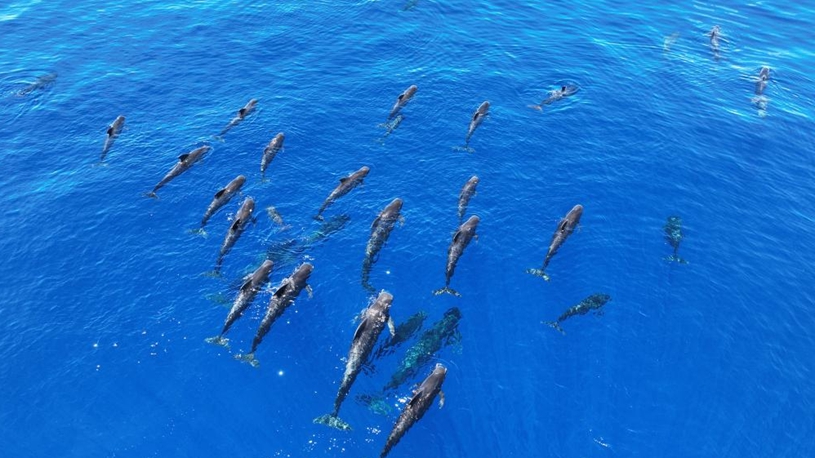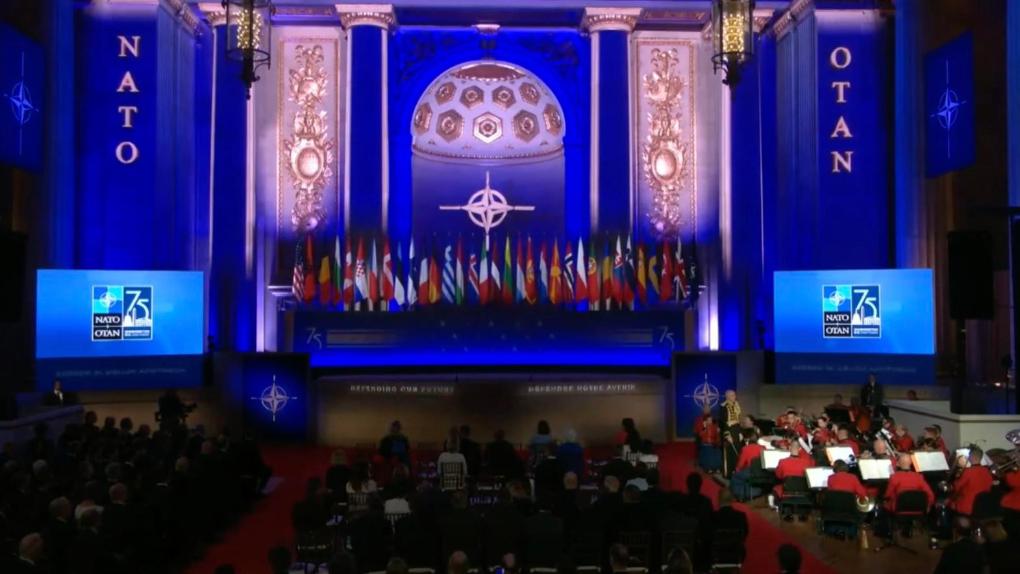Yemeni analysts agree that U.S. military intervention is not conducive to resolving the crisis. They argue that it only escalates tensions and uncertainties while failing to address the root cause in Gaza, where the ongoing conflict continues to fuel instability in the Middle East.
ADEN, Yemen, July 10 (Xinhua) -- Nearly six months after launching its first airstrikes against Houthi targets, a U.S.-led coalition has made little headway in curbing the Yemeni group's maritime attacks.
The U.S. military, mainly in collaboration with the British forces, has conducted hundreds of airstrikes against Houthi-controlled areas in Yemen, but the group has continued its attacks on ships in the Red Sea and expanded the attacks to the Indian Ocean and even allegedly in the Mediterranean Sea.
Yemeni analysts say the limited impact of the U.S. intervention underscores the limitations of deploying warships to such a volatile region.
U.S. MILITARY OPERATIONS FAIL TO DETER HOUTHI ATTACKS
Six months after the first U.S.-British airstrikes against Houthi targets in Yemen on Jan. 12, the initially limited intervention has evolved into a near-daily campaign. While the U.S. maintains the strikes have significantly degraded Houthi capabilities, recent developments depict a different picture.
The airstrikes, initially billed as a "one-off" response to Houthi missile threats, now target a wider range of Houthi infrastructure, including missile launchers, radars, and other military assets.
However, the Houthis continue to launch attacks on critical maritime routes. Since November 2023, they've sunk two commercial vessels, the "MV Rubymar" in March and the "Tutor" in June.
The Houthis have also displayed a growing arsenal, with unmanned boats and a possible homemade hypersonic missile added to their inventory. Furthermore, they've managed to down at least three U.S. MQ-9 Reaper drones, each worth around 30 million U.S. dollars, and have claimed multiple attacks on the USS Eisenhower in the Red Sea, a nuclear-powered air carrier, though these claims remain disputed by U.S. officials.
Yemeni military and strategic expert Thabet Hussein stated that while U.S. military operations in the Red Sea aim to "dissuade" Houthi attacks on shipping lanes and dismantle their infrastructure, these efforts have fallen short.
"The U.S. six-month operations have failed to deter the Houthis from continuing their attacks," Hussein said.
"LACK OF FOCUS" FROM U.S. OPERATIONS
Nabil al-Bukiri, director of the Arab Forum for Studies and Development, said the American strikes were carried out without a clear strategic purpose.
"The American strikes had no goal and therefore had no impact on the Houthi group," al-Bukiri told Xinhua, adding that "the operations were more about establishing an American presence in the region rather than weakening the Houthi position."
Hussein also agreed that the coalition's strikes were not sufficiently "focused, intense, or decisive," costing the whole mission. The Yemeni analyst further noted the crucial role of external support, particularly from Iran.
Iran quickly "compensates for the Houthis' losses," which enables the Houthis to maintain their offensive capabilities despite coalition efforts, Hussein stated.
The Houthi group is widely considered a vital part of the Iran-led "arc of resistance" in the region, although the two sides have repeatedly denied claims that Iran has been supplying weapons to the militant group.
Moreover, Hussein pointed out the Houthis' growing experience from years of civil war and enduring airstrikes as another important factor for their success in staving off the U.S. airstrikes. "They've become adept at preserving strength and seizing opportunities to strike back," he said.
FAR-REACHING EFFECTS OF THE CRISIS
The persistence of the crisis in the Red Sea, one of the world's most important trade routes, has far-reaching effects on regional geopolitical dynamics and global trade.
As the waterway turns into a danger zone, an increasing number of companies transporting vital raw materials and fuels have suspended operations in the area, rerouting their ships an additional 3,500 nautical miles around the Cape of Good Hope in South Africa.
The detour adds about 12 days to a ship's journey from Asia to Europe. Prices have also more than tripled, according to the latest index from the Shanghai Shipping Exchange.
According to a report from Allianz Trade, the crisis in the Red Sea could slow global GDP growth by 0.4 percent and inflation increases by 0.5 percent.
Amid the turmoil, al-Bukiri noted that the Houthi group has benefited from the crisis, with U.S. military operations inadvertently enhancing their local and regional standing.
The Houthis have managed to frame their actions as support for Gaza, earning sympathy from those who are unsatisfied with the Arab states' reaction to the conflict in Gaza. The newfound support has significantly bolstered Houthi influence, potentially altering the dynamics within war-torn Yemen and complicating the peace process.
Yemeni analysts agree that U.S. military intervention is not conducive to resolving the crisis. They argue that it only escalates tensions and uncertainties while failing to address the root cause in Gaza, where the ongoing conflict continues to fuel instability in the Middle East.■












